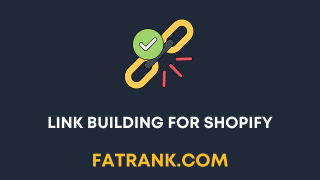
Link Building for Shopify: Full Tutorial
Contents
- Key Takeaways:
- Introduction to Link Building for Shopify
- Understanding Backlinks and their Types
- Strategies for Building Backlinks to Your Shopify Store
- How to Optimize for SEO on Shopify
- Conclusion and Additional Resources for Shopify Link Building and SEO
- Five Facts About Link Building for Shopify: Full Tutorial:
- FAQs about Link Building For Shopify: Full Tutorial
- What is link building and why is it important for SEO?
- What are the different types of backlinks and how do they impact SEO?
- What are some simple ways to get backlinks for a Shopify store?
- Why are backlinks to product category pages important for SEO?
- What is the difference between dofollow and nofollow links, and how do they impact SEO?
- What are some best practices for a successful link building campaign?
- Other Shopify Guides
Key Takeaways:
- Launching your Shopify store is just the first step of running an ecommerce business. You need to actively seek out your customers after pushing your page live. Search engine optimization (SEO) is the easiest way to do this without paying for ads. SEO allows users to more easily find you and your products. Keyword research and getting backlinks are the two most important factors for SEO.
- Backlinks are crucial for Shopify SEO: To increase the visibility of your Shopify store, obtaining quality backlinks is crucial. Backlinks signal to search engines that your site is trustworthy and relevant, leading to higher rankings and increased traffic. There are three types of backlinks: editorial (natural), outreach (manual), and non-editorial (self-created). Editorial backlinks carry more weight than outreach and non-editorial backlinks.
- High-quality backlinks are key: To see the greatest benefit from link building, you should focus on obtaining links from reputable, authoritative sources, such as industry publications and influencers. Look at any top ranking website for any remotely competitive keyword, and you’ll usually find they have hundreds (if not thousands) of websites linking to them.
- Creating valuable, relevant content is key to earning natural backlinks: Writing high-quality content that answers common questions in your industry or provides helpful tips is one of the most effective ways to earn new links. Quality, unique, and essential content for the target audience will be eagerly read and linked. There is no guarantee that content will be successful, but it can have a significant impact on link building for ecommerce websites.
- Backlink repair is often overlooked: Many site owners are unaware that links on their site may be broken, leading to 404 errors and a poor user experience. You can use tools to periodically check for broken links and fix them for a positive impact on SEO and user experience.
- Technical SEO considerations are also important: To optimize your Shopify store for SEO, you should pay attention to details like page speed, SSL, avoiding duplicate content, and creating a sitemap and robots.txt file. Shopify handles some basic SEO best practices out of the box, but it’s unlikely to be enough to take your store to the top of Google.
- Shopify owners are encouraged to select niche market products to help make the link-building process easier. A simple link gap analysis can determine which pages to build backlinks to, by analyzing the domain rating (DR) and number of different websites linking to a specific page. Furniture-work.co.uk should consider building more backlinks to the top site’s page but also consider other pages. Officefurnitureonline.co.uk has a lot more room to build backlinks.
- Buying links is risky: Buying links on external sites can be risky, and low-quality links are worse than no links at all. Tips for choosing which sites to link to include choosing reputable sites, placing links on different domains, and ensuring the page’s content is relevant to the link.
- Getting backlinks is doable: 15 ways to get backlinks include being a resource for journalists, using HARO or hiring a HARO agency, publishing original research or data, creating statistic roundup pages, publishing free tools, finding unlinked mentions and asking for a backlink, repairing broken links, seeing who’s linking to your competitors, utilizing your business network, analyzing existing referral traffic, pitching inclusion on a resource page, having your products reviewed, joining communities, being a podcast guest, and not forgetting about internal links. Shopify Academy offers a free course on SEO for beginners.
Introduction to Link Building for Shopify
Link building can play a significant role in boosting the traffic of a Shopify store and enhancing its search visibility, which can ultimately increase its revenue. In this section, we’ll discuss the significance of SEO for Shopify and elaborate on how link building contributes to the success of a Shopify store. Furthermore, we’ll provide guidance on the best starting point for link building that will help in creating a strong and sustainable Shopify store.
Importance of SEO for Shopify
As a Shopify store owner, you understand the importance of making your business easily discoverable on search engines. You want to attract more organic traffic to your site to increase sales. This is where Search Engine Optimization (SEO) comes into play. By implementing effective SEO practices, you can optimize your website with relevant keywords and high-quality content to rank higher in search engine results pages.
Having good SEO for your Shopify store is essential to increase online visibility, drive traffic, and generate sales. The more optimized your site is, the easier it will be for your potential customers to find you through an organic search engine result page. For instance, if someone searches for “Gym Wear” on Google, you want your gym wear store to appear among the top results, so that you can attract the right customers.
To stand out from the competition, you need to have a solid SEO strategy. With so many competitors in the market, investing in SEO practices can give you an edge over your rivals and help you target the right customers. In addition to creating high-quality content and using relevant keywords, building backlinks is another crucial aspect of SEO. The more high-quality websites that link back to your Shopify store, the higher your site will rank in search engine results pages.
In summary, optimizing your Shopify store’s SEO is key to long-term success. By investing in time and resources, you can increase your online visibility and drive targeted traffic to your site. As an entrepreneur, you can benefit from effective SEO practices to boost your Shopify store’s success. So, start with building high-quality backlinks to get noticed by search engines.
Best starting point for link building
Improving the SEO of your Shopify store is essential to gaining online visibility and increasing traffic. One of the best starting points for link building is by understanding the importance of high-quality backlinks and their types. High-quality backlinks are links from reputable and authoritative websites that are relevant to your Shopify store’s content. These links indicate that your website is a reliable source of information, which can lead to more referral traffic and higher search engine rankings.
To build quality backlinks, create valuable and quality content that other websites would be interested in linking to. Make sure to choose reputable sites within your niche to reach out to for link placement opportunities. It’s best to place links on different domains to avoid appearing suspicious to search engines. Another way to acquire backlinks is by repurposing your existing content, which can create new opportunities for backlinking.
Analyzing existing referral traffic is also vital in ensuring your backlinking efforts are worthwhile. Repair any broken links that lead to your site to avoid any 404 errors or outdated information.
For optimal SEO on Shopify, it’s essential to consider technical considerations like creating a sitemap, optimizing page speed, using SSL, and avoiding duplicate content. Consistently following these practices can help improve your e-commerce store’s overall visibility in search engines.
Lastly, a pro tip for successful SEO for e-commerce stores is actively building internal linking structures within the website. This can help visitors find related products easily, while also improving the flow of authority throughout the site.
Understanding Backlinks and their Types
Did you know that off-page SEO is just as important as on-page SEO when it comes to ranking your Shopify store on search engines? That’s where backlinks come into play. In this section, we’ll discuss the importance of high-quality backlinks and the various types of backlinks that you need to know when building links for your Shopify store.
The importance of high-quality backlinks
If you want to boost your Shopify store’s SEO and increase its traffic, having high-quality backlinks is an essential factor to consider. Backlinks acquired from reputable and authoritative websites can add to your website’s credibility, making it more trustworthy to your target audience. Moreover, search engines such as Google will recognize your Shopify store’s relevance better, giving it a higher chance to rank better in search engine results pages.
Some of the benefits of having high-quality backlinks include:
| Benefits |
|---|
| Providing signals to search engines that your website is trustworthy and informative, leading to higher search rankings; |
| Bringing more referral traffic to your store; |
| Providing additional context about your eCommerce store’s niche to search engines; |
| Driving organic traffic, which has a higher likelihood of converting to sales; |
| Improving your domain authority score, which indicates how authoritative and credible your entire website is deemed by Google. |
When it comes to link building strategies, prioritizing high-quality backlinks over low-quality ones is essential. Not all links are created equal, and the quality of every link matters. By building high-quality backlinks, your Shopify store can sustainably succeed in the long run.
To achieve e-commerce success on Shopify, you need to treat building high-quality backlinks as if you’re building a puzzle – carefully selecting each piece to create a cohesive and effective strategy. This way, you can achieve efficient e-commerce success on Shopify and help your Shopify store reach its full potential.
Strategies for Building Backlinks to Your Shopify Store
Building backlinks is an important factor in improving your search engine ranking and attracting more traffic to your Shopify store. In this section, we will explore various strategies for building backlinks to your Shopify store effectively. From creating valuable content to fixing broken links, we will highlight different techniques to help you attract more clicks and improve your online visibility. Let’s get started on exploring how you can boost your Shopify store’s traffic through link building!
Creating valuable and quality content
While creating valuable and high-quality content is important for any website, it is especially crucial for Shopify stores looking to improve their search engine optimization (SEO). Link building can certainly contribute to this effort, but research shows that content that aligns with your target audience’s interests and incorporates relevant keywords is even more effective in boosting site traffic and improving search rankings.
To begin creating effective content, marketers must first research their target audience’s interests and needs. This research will inspire ideas for articles, blogs, and videos that will resonate with the audience. It is also important to map the content to the business goals to ensure that it creates value that aligns with the audience’s interests while including appealing graphics or videos.
Sharing insightful information through trustworthy sources is an excellent way to improve a website’s reputation, and it also increases the likelihood of reputable sites linking back to the website. Breaking content into concise paragraphs with subheadings makes it easier for readers to skim the content and stay engaged. By optimizing images with relevant labels or “alt-text,” marketers can reinforce the use of relevant keywords and enhance the visual appeal of the article.
Through creating valuable and high-quality content in written or visual formats, it is possible to connect with customers and build brand recognition beyond traditional advertising tactics.
Choosing reputable sites to link to
When it comes to link building for Shopify, it is crucial to choose reputable sites with strong domain authority. Backlinks from these high-quality sites can significantly improve your search engine ranking, leading to increased visibility and traffic for your online store.
However, it is important to keep certain factors in mind when choosing sites to link to. Firstly, the number of linking domains should be high. Secondly, the site should have a high domain authority score. Thirdly, it is best to choose sites that are related to your niche or industry. Fourthly, avoid spammy or low-quality websites. Finally, prioritize links from trusted sources such as publications, educational institutions, or government websites.
Proper research and analysis of a website’s content before linking to it is also imperative. You should ensure that the site’s content aligns with your brand values and quality.
Diversifying the linking domains is also essential for effective link building. Focusing on a specific domain may seem attractive, but it reduces the chance of attracting new audiences who are not already aware of your brand through their preferred platforms.
Finally, it is important to link to relevant and helpful content for users rather than promoting your own products or services. Customers prefer valuable information over ads, so linking to informative content can improve their experience on your site.
Therefore, choosing reputable sites to link to is vital for link building strategies for Shopify. It provides quality backlinks that improve search rankings and organic traffic growth.
Placing links on different domains
To improve link building for Shopify, it’s vital to place links on different reputable and relevant domains. By doing so, you can diversify the sources of traffic and enhance the credibility of the site. It’s crucial to choose websites that are reputable and relevant to your niche while avoiding spammy or low-quality sites. It’s also recommended to vary the anchor text used in these external links to avoid redundancy and place links on different pages within a website rather than only on the homepage. Regularly monitoring and updating these links for accuracy and relevance can also have a significant impact on the site’s credibility.
In addition to placing links on different domains, optimizing anchor text for relevant keywords, choosing websites with high domain authority, and using social media to connect with other businesses in your niche can be helpful. Employing proven strategies like crafting valuable and quality content, repurposing existing content, and analyzing existing referral traffic can also contribute to better link building for Shopify stores. By implementing these tactics, your Shopify store can achieve better search engine optimization and improved rankings on popular search engines like Google.
Repurposing existing content
One way to repurpose existing data is by creating different formats like infographics, videos, podcasts, or short posts that help highlight the essence of the original article. Repurposing also helps to enrich current notable topics by offering new insights into a pre-existing topic. Creating evergreen content while tracking what worked well in the past helps to create effective pieces that stand the test of time. Evergreen content works best with long-form blog articles, but it is also ideal for other forms of content such as books. It is essential to structure content between each section, ensuring everything stays structured and easy to browse.
With all these options at hand, remember that when repurposing old content, the goal is either optimization or expansion, to ensure top quality in both objectives, and to increase traffic on your site. Fixing broken links is like being a digital ambulance, saving your website’s SEO from flatlining. Repurposing existing content is an efficient way to keep your content useful and engaging to your audience while optimizing your site’s search ranking. So, keep repurposing, adapting, and updating your content to keep it fresh and up-to-date with the latest trends and happenings.
Repairing broken links
As a Shopify store owner, it is essential to understand the impact of broken links on your website’s SEO efforts. Repairing broken links is crucial as it can deteriorate your Google ranking and hurt your site’s user experience. If you want to repair broken links on your Shopify website, follow these three steps:
| Step | Action |
|---|---|
| 1. | Identify the Broken Links: To identify which links have become broken, you can use a link checking tool or check for 404 errors in Google Search Console. |
| 2. | Determine What to Do with Them: After identifying broken links, determine what to do with them. You can redirect them, change their URL, or delete them entirely. |
| 3. | Implement Fixes: Implement the chosen fixes into your web pages and notify Google to re-index your updated webpage. |
Additionally, it is vital to avoid frequent URL changes because discontinuing old URLs before redirecting them may result in link decay. This means that all backlinks that used to direct users to the old URL will no longer work when a visitor clicks on them. Therefore, always keep redirects correctly managed whenever making URL changes on your Shopify website.
By repairing broken links and keeping redirects correctly managed, you can enhance your Shopify store’s user experience, improve your Google ranking, and ensure the continued success of your website.
Analyzing existing referral traffic
Referral traffic analysis is an essential aspect of any Shopify store owner’s marketing strategy. By analyzing existing referral traffic, you can identify the sources of incoming traffic to your store and understand which pages or promotional efforts are attracting the most attention from potential clients. This information can help improve your site’s general ranking and increase visibility by focusing on link-building strategies that will generate high-quality backlinks.
When analyzing existing referral traffic, it’s not enough to focus solely on securing more backlinks. It’s equally important to evaluate the quality of these links to ensure they meet your standards. By regularly monitoring referral sources, you can identify where your referral traffic originates and take advantage of opportunities to deepen those relationships over time.
One of the most valuable ways to build links to your Shopify store is by taking note of who has already linked to your site and how they found it. By doing this, you can develop a comprehensive understanding of your referral traffic and use this knowledge to adjust your marketing strategy. Focusing on link-building activities that are likely to generate the best results for growth in customer acquisition, conversion rates, and sales volume will help you improve your website’s overall performance.
How to Optimize for SEO on Shopify
If you’re a Shopify user, you’ll know how important it is to optimize for SEO to attract customers and boost your sales. In this section, we’ll explore the various technical aspects to consider when it comes to optimizing your Shopify store for SEO. From creating sitemaps and robots.txt files to optimizing page speed, using SSL, and avoiding duplicate content, we’ll cover everything you need to know to ensure your Shopify store stays ahead of the competition.
Technical SEO considerations
When it comes to building your Shopify store’s online presence, technical SEO considerations are crucial for success. This involves optimizing the technical aspects of your website to improve its visibility and ranking on search engines like Google.
One important aspect of technical SEO is ensuring that your website is properly structured with clear and concise HTML tags that accurately describe your content. This includes using proper heading tags (H1, H2, H3) for section titles and tagging images and other media with descriptive alt text. Additionally, having a user-friendly navigation structure that makes it easy for visitors to find what they’re looking for is crucial.
Another important consideration is mobile responsiveness. With the majority of internet traffic coming from mobile devices, having a responsive website that adjusts to different screen sizes is essential for both user experience and SEO rankings. This can be achieved through careful design and coding practices such as using relative units for font sizes and leveraging CSS media queries.
It’s also important to ensure that your website loads quickly, as slow site speed can negatively impact both user experience and search engine rankings. Optimizing image file sizes, leveraging browser caching, and minimizing HTTP requests are just a few ways to improve site speed.
Overall, taking the time to optimize your website’s technical aspects can help improve its visibility on search engines and contribute to a successful link building strategy.
As you continue to build your Shopify store’s online presence through link building strategies discussed above, it’s important to keep in mind the role of technical SEO considerations in boosting your overall success. Taking steps such as optimizing HTML tags, ensuring mobile responsiveness, and improving site speed can make a significant impact on search engine rankings and drive more traffic to your site.
Creating a sitemap and robots.txt file
If you want to optimize your website for SEO purposes, it’s important to create a sitemap and robots.txt file. These files assist search engines in easily accessing your site’s structure and contents, which in turn improves its rank in SERPs. Regardless of the CMS platform you use, there are six basic steps you can follow to create these files, including studying how crawlers work, creating an XML sitemap file, adding it to Google Search Console, fashioning a robots.txt file, and testing both files using tools like Google Search Console or Screaming Frog.
| Action | How to Execute |
|---|---|
| Upload Files | Via FTP or editor |
Once you’re satisfied, you can upload your files to your server or CMS platform via FTP or editor. Remember to regularly update your sitemap to ensure that search engines always have an accurate snapshot of your website. With these tips, you can effectively create a sitemap and robots.txt file for your website.
Optimizing page speed
When it comes to creating a great user experience for your Shopify store, optimizing page speed is key. Slow-loading pages can lead to frustration for users and negatively impact your site’s ranking and conversion rates. Therefore, it’s important to take several technical SEO considerations into account.
One important element of optimizing page speed is image compression. Large images can significantly increase page load times, which is why compression tools like TinyPNG or Kraken.io can be helpful in reducing file sizes without sacrificing quality.
Another essential technique to decrease loading times is minimizing HTTP requests made by the browser. This can be done by reducing the number of files used in HTML coding for CSS, JavaScript, and other formats.
Additionally, leveraging browser caching and using Gzip compression techniques are effective ways to improve the page speed, aka “time-to-first-byte,” especially for customers accessing your store from different devices.
It’s also worth considering implementing SSL on your website. Not only does it help secure customer data, but it also adds to their trust in your site. By implementing these optimization strategies, you can provide customers with a seamless experience while navigating your store.
Using SSL
If you’re running a Shopify store, ensuring your customers’ sensitive information is secure should be a top priority. This is where using SSL comes in, as it’s an essential step to help protect against data breaches. Essentially, an SSL (Secure Sockets Layer) certificate provides an encrypted line of communication between your server and the customer’s web browser. This means that any information that’s exchanged, such as login details or credit card information, remains secure while it’s being transmitted.
Beyond just offering security, using SSL can also improve your store’s SEO. Google considers SSL to be a ranking factor when deciding which websites to show on its search engine results pages (SERPs). By using SSL, you can give your Shopify store an advantage over your competitors as it provides a more secure user experience for your customers.
But keep in mind that not all SSL certificates are created equal. When selecting an SSL certificate for your store, it’s important to think about factors such as the type of certificate you require, the level of validation needed, and the reputation of the provider you choose.
To effectively implement SSL, you should update all of the URLs on your website to start with HTTPS instead of HTTP. You could also add an SSL seal or badge to your site to provide your customers with peace of mind. Overall, if you’re running a Shopify store, using SSL is an excellent way to enhance both your store’s security and search engine rankings. Remember, duplicate content may seem like a shortcut, but it won’t get you very far in the long run.
Avoiding duplicate content
To ensure that your Shopify store’s SEO is optimized, it is essential to avoid duplicate content. Duplicating content can negatively impact your search engine rankings and make it more challenging for potential customers to find your website.
To prevent duplicate content, it is crucial to check that each page on your website has a unique URL and that you are not using the same product descriptions as other websites or competitors. Avoiding duplicate content is important for your website’s success.
Ensure that each page is entirely distinct, with its unique title tags, meta descriptions, and content. This approach ensures that your website is user-friendly and provides value to your customers.
Pro Tip: Use tools such as CopyScape and Siteliner to scan for duplicates across multiple pages of the website. These tools detect any similarities or duplications in the site’s content and highlight problem areas to be addressed promptly. Avoiding duplicate content is a vital part of your website’s SEO strategy.
Conclusion and Additional Resources for Shopify Link Building and SEO
As you reach the conclusion of your Shopify Link Building and SEO journey, it’s essential to take advantage of all the additional resources available to you. By following SEO experts on social media and reading industry blogs, you can stay up-to-date with the latest trends and strategies.
In addition, attending webinars and conferences can provide valuable knowledge and networking opportunities with like-minded individuals. However, it’s crucial to continually implement link building strategies and monitor their success using tools such as Google Analytics and Google Search Console.
Remember that link building is an ongoing process, and it takes time to see results. It’s vital for the success of your Shopify store to increase its visibility and credibility by incorporating effective link building strategies. These strategies can increase your website’s authority and drive more organic traffic to your site.
So don’t miss out on these valuable resources and continue to improve your SEO skills to stay ahead of competitors. Keep striving towards success!
Five Facts About Link Building for Shopify: Full Tutorial:
- ✅ Launching your Shopify store is just the first step of running an ecommerce business. To actively seek out your customers without paying for ads, you need to utilize search engine optimization (SEO), and link building is the backbone of a successful off-page SEO strategy. (Source: https://www.referralcandy.com/blog/build-shopify-backlinks)
- ✅ Backlinks are inbound links from other sites that point to your site. They are like word-of-mouth marketing for the search engines, and SEO allows users to more easily find you and your products. Keyword research and getting backlinks are the two most important factors for SEO, and quality backlinks are essential for a successful off-page SEO strategy. (Source: https://www.referralcandy.com/blog/build-shopify-backlinks, https://logeix.com/shopify-seo/link-building, https://sherpas.design/blogs/e-commerce/link-building-shopify)
- ✅ There are three types of backlinks: editorial (natural), outreach (manual), and non-editorial (self-created). Editorial backlinks are given to you without you asking for them, while outreach and non-editorial backlinks require some form of action from you. Editorial backlinks carry more SEO weight than outreach and non-editorial backlinks. (Source: https://sherpas.design/blogs/e-commerce/link-building-shopify)
- ✅ There are various ways to get backlinks, including creating valuable and quality content for your target audience, being a resource for journalists, using HARO or hiring a HARO agency, finding unlinked mentions and asking for a backlink, repairing broken links, seeing who’s linking to your competitors, utilizing your business network, analyzing existing referral traffic, pitching inclusion on a resource page, having your products reviewed, joining communities, and being a podcast guest. (Source: https://ecommercefastlane.com/the-complete-guide-to-link-building-for-your-ecommerce-business-in-2023/, https://www.shopify.com/blog/17989280-building-backlinks-the-backbone-of-your-ecommerce-business)
- ✅ Technical SEO is critical to e-commerce success, and it’s important to optimize for all facets of SEO to rank higher in Google. Shopify handles some basic SEO best practices out of the box, but it’s unlikely to be enough to take your store to the top of Google. Technical SEO includes creating a sitemap and robots.txt file, optimizing page speed, using SSL, and avoiding duplicate content. (Source: https://ahrefs.com/blog/shopify-seo/)
FAQs about Link Building For Shopify: Full Tutorial
What is link building and why is it important for SEO?
Launching your Shopify store is just the first step of running an ecommerce business. You need to actively seek out your customers after pushing your page live. Search engine optimization (SEO) is the easiest way to do this without paying for ads. SEO allows users to more easily find you and your products. Keyword research and getting backlinks are the two most important factors for SEO. Backlinks are inbound links from other sites that point to your site. Backlinks are like word-of-mouth marketing for the search engines. They are important for SEO and should be a regular part of your daily business tasks. Shopify owners are encouraged to select niche market products to help make the link-building process easier. Getting backlinks is doable, and the article will break it down for you. Search engines want to recommend only the most fitting webpages when a user searches for something.
What are the different types of backlinks and how do they impact SEO?
There are three types of backlinks: editorial (natural), outreach (manual), and non-editorial (self-created). Editorial backlinks are given to you without you asking for them, while outreach and non-editorial backlinks require some form of action from you. Editorial backlinks carry more SEO weight than outreach and non-editorial backlinks as they are considered more trustworthy and relevant.
What are some simple ways to get backlinks for a Shopify store?
Backlinks are still a hugely important signal of trust and authority, despite their importance arguably lowering in recent years. Look at any top ranking website for any remotely competitive keyword, and you’ll usually find they have hundreds (if not thousands) of websites linking to them. Search engines determine website credibility by the number of other websites that link to it. Link building is essential for ecommerce websites to rank highly on search engine results pages. Tips for choosing which sites to link to include choosing reputable sites, placing links on different domains, and ensuring the page’s content is relevant to the link. Buying links on external sites can be risky and low-quality links are worse than no links at all. Creating valuable and quality content is a great way to build natural backlinks. Quality, unique, and essential content for the target audience will be eagerly read and linked. There is no guarantee that content will be successful, but it can have a significant impact on link building for ecommerce websites. The article discusses how to optimize for SEO on Shopify to drive more traffic and sales to your store. It notes that Shopify handles some basic SEO best practices out of the box, but it’s unlikely to be enough to take your store to the top of Google.
Why are backlinks to product category pages important for SEO?
One important decision in deliberate link building is which page to point the links at, with the main decision being between bottom of funnel (i.e. product or product category pages) or mid/top of funnel (i.e. content). Backlinks tend to be more effective when pointed at the page you intend to rank, usually your product category pages. A simple link gap analysis can determine which pages to build backlinks to, by analyzing the domain rating (DR) and number of different websites linking to a specific page. Furniture-work.co.uk should consider building more backlinks to the top site’s page, but also consider other pages. Officefurnitureonline.co.uk has a lot more room to build backlinks.
What is the difference between dofollow and nofollow links, and how do they impact SEO?
Dofollow links tell search engines to follow the link and give credit to the page being linked to, while nofollow links do not. Dofollow links are important for building backlinks and improving SEO, as they pass on link equity and can help increase the authority and credibility of the linked page. Nofollow links, on the other hand, do not pass on link equity and do not directly impact SEO, but they can still be valuable for driving traffic and brand exposure.
What are some best practices for a successful link building campaign?
Link building is the process of building or earning backlinks from other websites to your website. High-quality backlinks are important for a successful off-page SEO strategy. Some best practices for a successful link building campaign include defining the types of backlinks you need, conducting keyword research, using HARO or hiring a HARO agency, targeting specific pages for link acquisition, creating quality and relevant content, utilizing schema markup, reaching out to influencers and other websites for link opportunities, analyzing your backlink profile and referring domains, and avoiding low-quality and spammy link sites. It is also important to remember that
Other Shopify Guides
Check out our A-Z Shopify SEO Guides:
- A Guide To Robots.txt on Shopify

- Best SEO Apps for Shopify
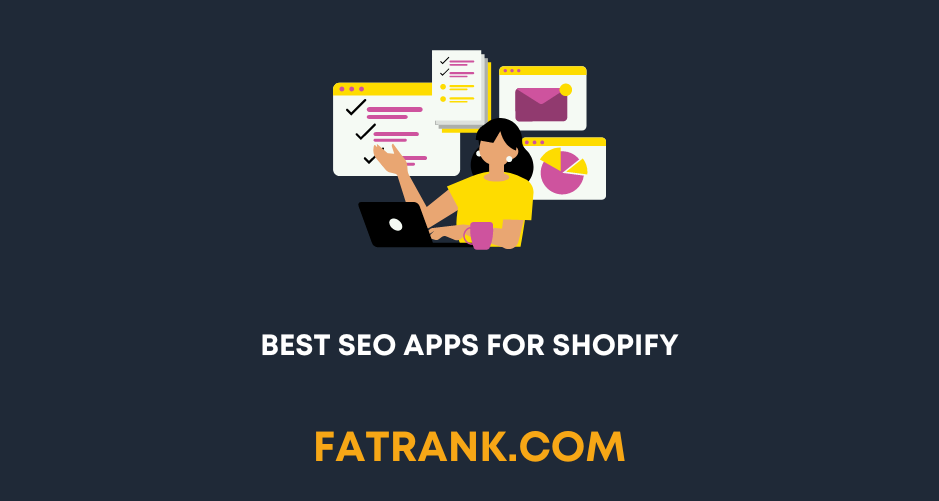
- Best Shopify Themes for SEO

- Blogging on Shopify: How To Do It For SEO Traffic
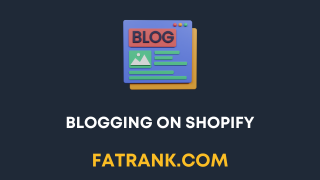
- Can you change the Shopify URL Structure?
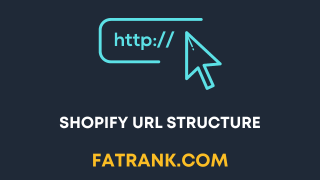
- Common Shopify SEO Issues
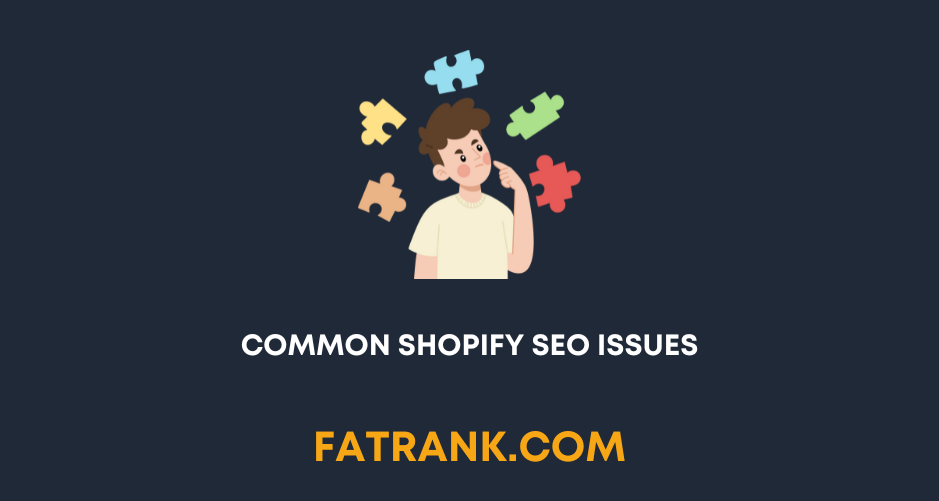
- Does Changing the Shopify Store Name Affect SEO
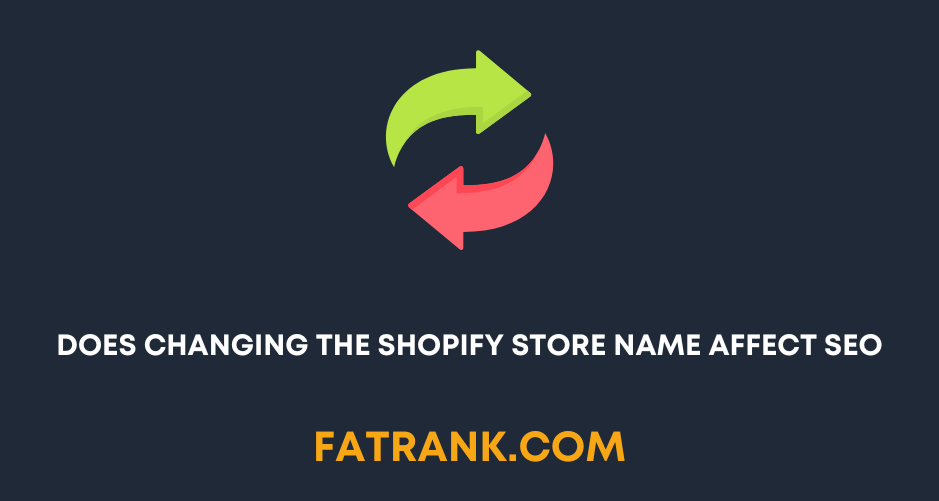
- Guide On Using Metafields In Shopify

- How Much Does Shopify SEO Cost

- How To Add Content To Shopify Collection Pages

- How To Add Keywords To Your Shopify Store For SEO
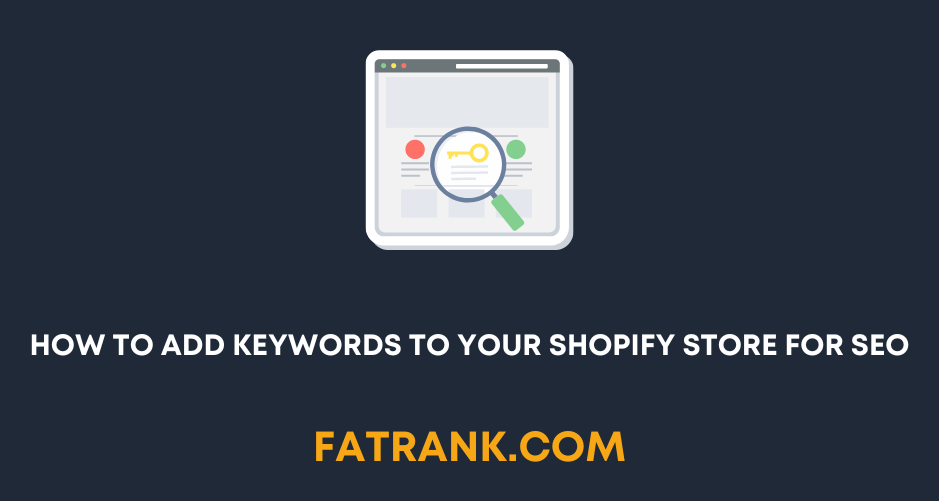
- How To Remove Duplicate Titles From Shopify Store
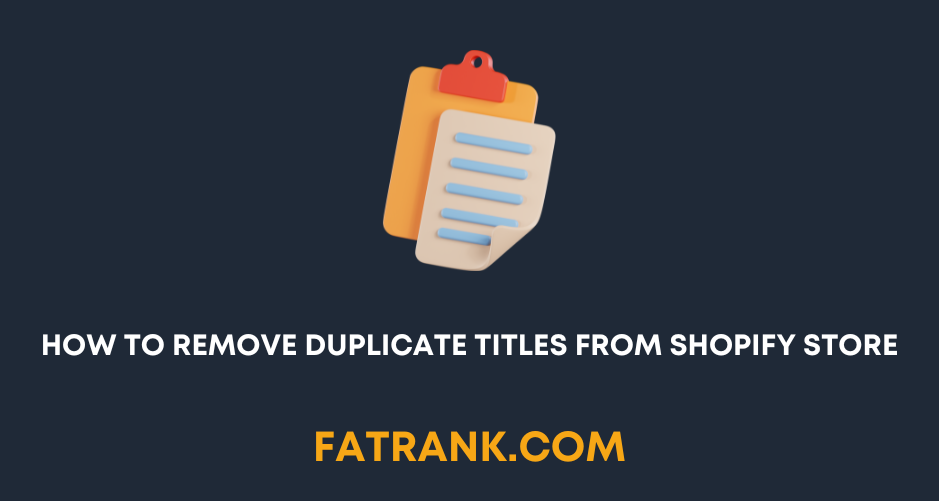
- How to Set up Multiple Shopify Stores Under One Domain

- Improving Search in Shopify Plus
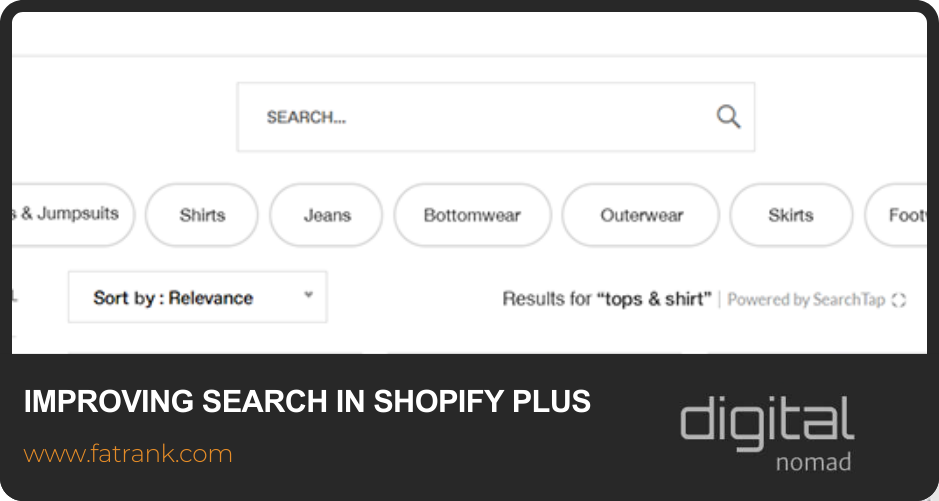
- Is Shopify bad for SEO? A Detailed Review
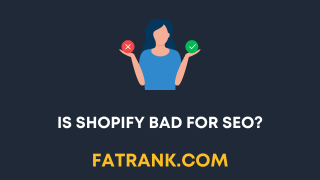
- Keyword Research for Shopify Stores
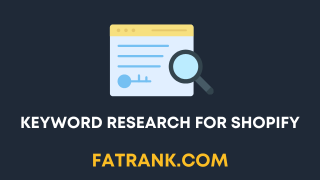
- Link Building for Shopify: Full Tutorial

- Shopify Breadcrumbs SEO Issues
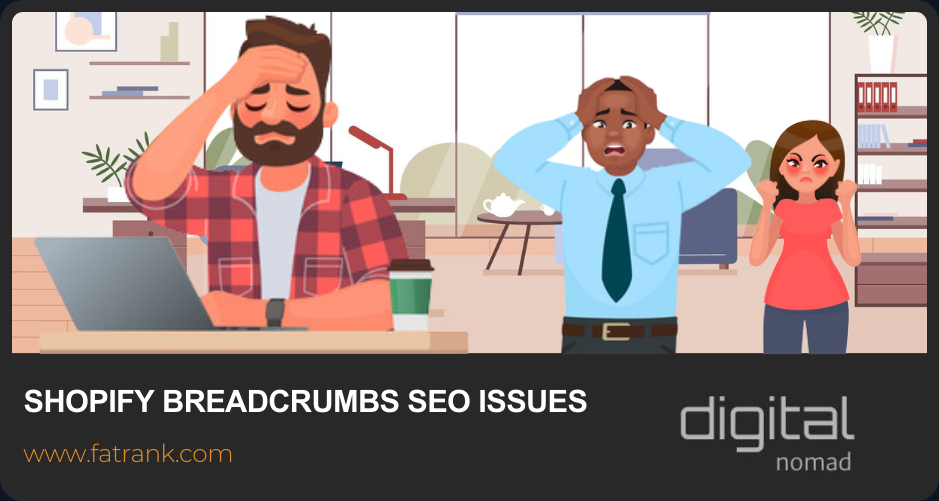
- Shopify Collection Page SEO: The Definitive Guide
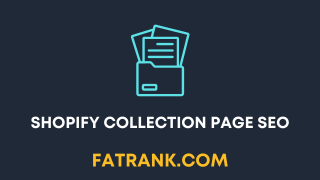
- Shopify Image Optimization: Speed & SEO Guide
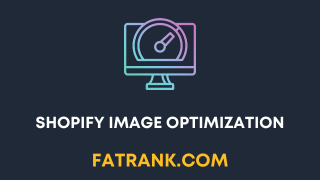
- Shopify International: Multi-Currency & Multilingual Setup
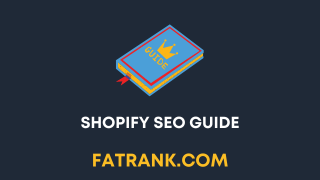
- Shopify On Page SEO Tutorial
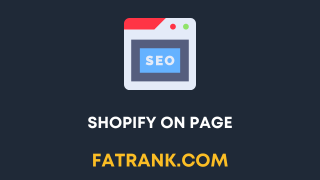
- Shopify Plus SEO

- Shopify Plus SEO: Potential Limitations
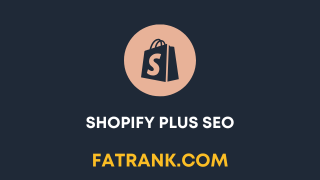
- Shopify Product Tags SEO: Why It's Bad & How To Fix It
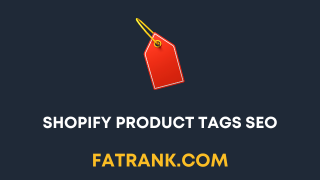
- Shopify Rich Snippets Tutorial: No App Needed

- Shopify SEO Agency
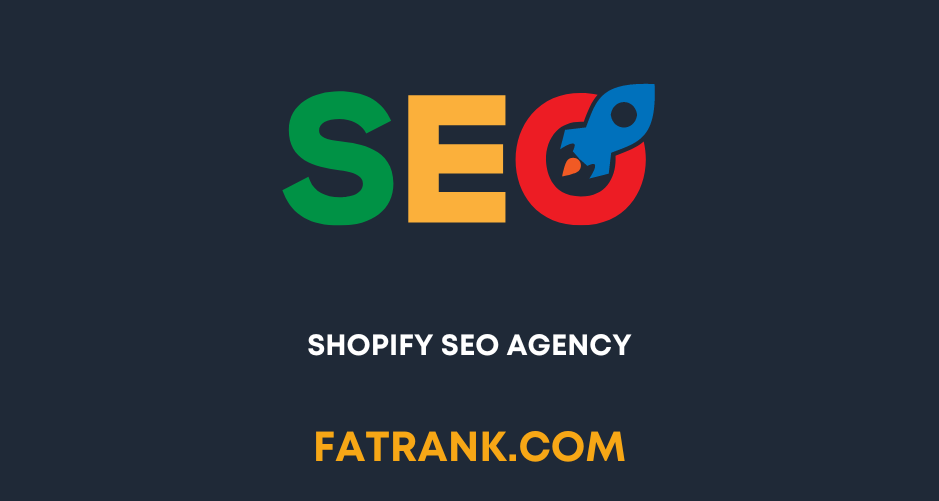
- Shopify SEO Case Study
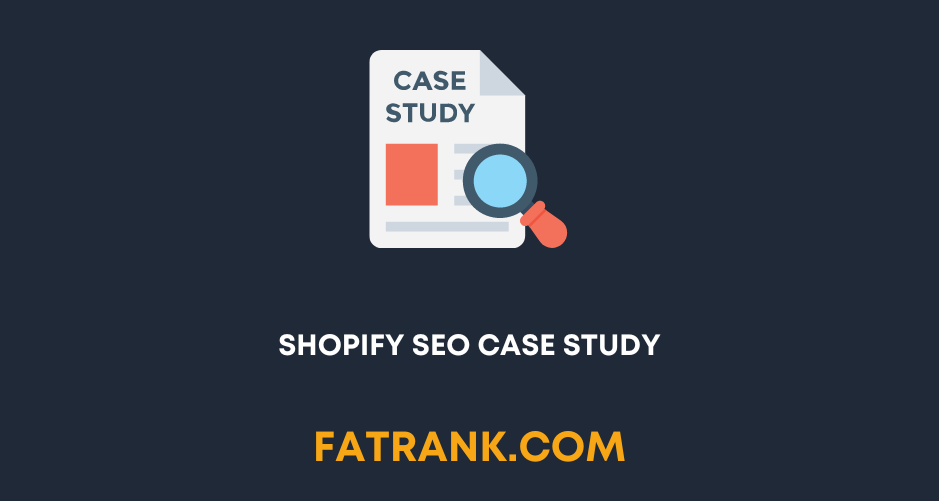
- Shopify SEO Checklist
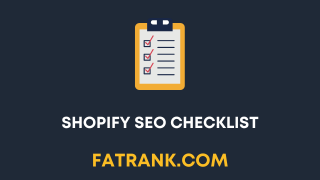
- Shopify SEO: The Definitive Guide
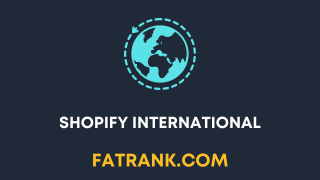
- Shopify Sitemap: Find & Submit Your XML Sitemap to Google
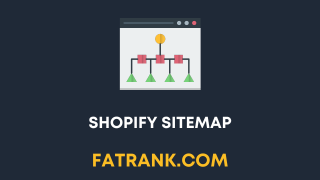
- Shopify Speed Optimization Guide
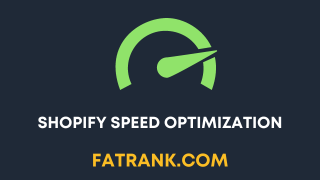
- Technical SEO for Shopify
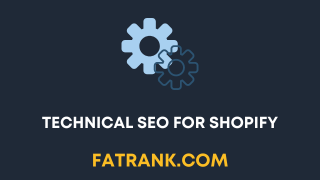
- Why Is No One Buying From My Shopify Store
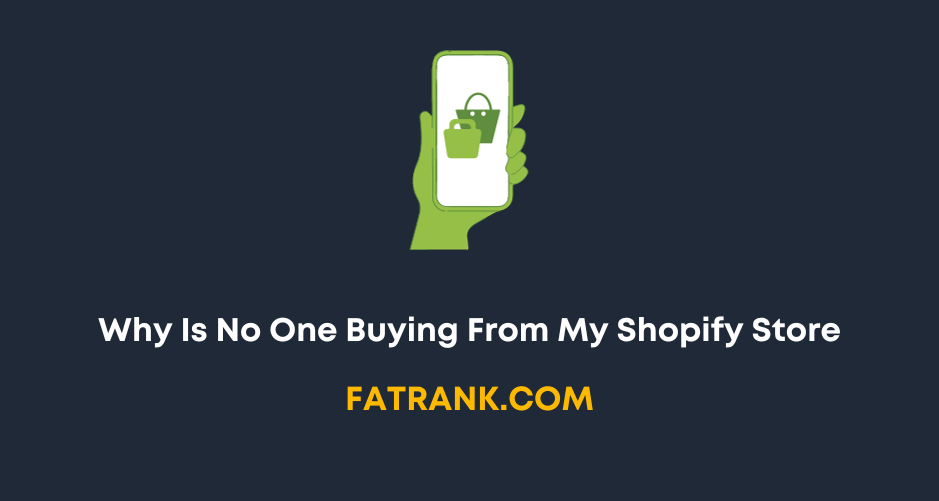
- Workarounds for the Shopify Variants Limit


About FatRank
Our aim to explain and educate from a basic level to an advanced on SEO and Social Media Marketing.
